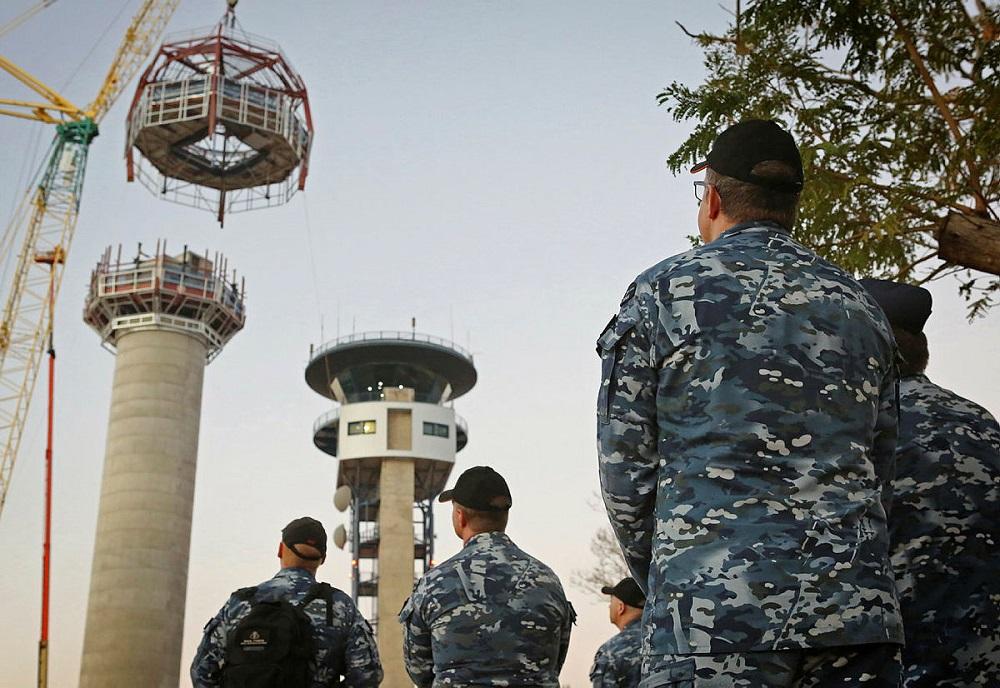Spoiler alert: This article references successful procurement changes and positively recognises the work of Australia’s defence ministers.
It’s easy to criticise defence procurement initiatives, and the ministers who oversee them. From the Whitlam government’s frigate program to the Howard government’s Super Seasprites and Taipan helicopters, to the more recent French submarine debacle, Australia’s procurement history—especially its misadventures—illustrates how complex funding defence can be and that the risk of a bungling is always lurking.
This is why there’s little wonder that it’s so desperately hard to find bouquets for procurements. When there are successes, we fail to recognise them, let alone celebrate them. That’s partly because it can be hard to find data supporting a procurement’s claim to success.
But one place where there is such data is in local industry participation in Northern Territory defence infrastructure programs.
Since 2017, local industry participation in these programs has increased significantly. As the Defence Department continues to upgrade bases, expand facilities and build new ones, businesses in the NT have been reaping the rewards of good defence procurement policy.
That year, in Darwin, Defence Minister Marise Payne announced that the government would support a series of pilot initiatives to encourage bidders to involve local industry in their infrastructure projects. International engineering and construction company Laing O’Rourke became the first successful bidder under this pilot. The company used ‘works packages’ in its project, which grouped related tasks within a larger project into packages for subcontracting. Basically, these appear to be smaller projects, but are actually sub-projects that support the overall project overseen by the managing contractor.
Laing Rourke’s success ensured that the idea took hold across the NT. Soon after, two other companies, Lendlease and Sitzler, followed suit. This came alongside industry advocacy led by peak body Master Builders NT, which believed that the local construction industry could meet the needs of Defence. At the time, not everyone accepted that claim.
However, two significant independent econometric studies tied directly to the 2015 and 2016 defence white papers crunched the numbers on what was actually possible. They showed that the construction sector could handle it and reassured those involved. This changed the narrative, but it was only possible thanks to a partnership between NT industry, the US Force Posture Initiative Office and Defence’s Capital Facilities and Infrastructure branch in Canberra.
This approach—of examining local industry capability and capacity and aligning it with procurement tweaks where possible—also enjoyed bipartisan support. Deputy Prime Minister and Defence Minister Richard Marles also strongly supported the changes as the shadow minister for defence.
We know it worked because all three managing contractors chose to run their early-phase procurement work through the NT’s open Industry Capability Network (ICN) platform, providing local industry with many lower-tier subcontracting opportunities, and tracking their involvement.
Six years, 200-plus work packages and more than $1 billion later, the confirmed award data logged on the ICN shows the soaring trajectory of local participation in defence infrastructure, from 30% before the pilot initiatives to just under 70% today, and rising.
That success has translated into measurable achievements. That leap of 40 percentage points is approximately 2,500 direct additional jobs and many more in local subcontracting and supply chains. Someone would always have done that work—but under this system the local benefit is much more substantial. Defence’s pilot programs helped develop a scalable industry base in northern Australia.
The approach has stabilised the workforce, strengthened supply chains, earned Defence a more robust social licence, created opportunities for apprentices and trainees, and ultimately grown Australia’s north.
This is an outstanding outcome for all stakeholders, and it came from a relatively simple procurement policy change, backed by some ministerial ambition.
Those involved in this success story all point to one key element that made a huge difference—collective commitment. Political bipartisanship, partnership between defence officials and industry, and preparedness to invest in research all allowed quality decisions to be made.
Despite the missteps, the journey of defence infrastructure in the north proves that there are indeed gems in the complex world of Australian defence procurement.


